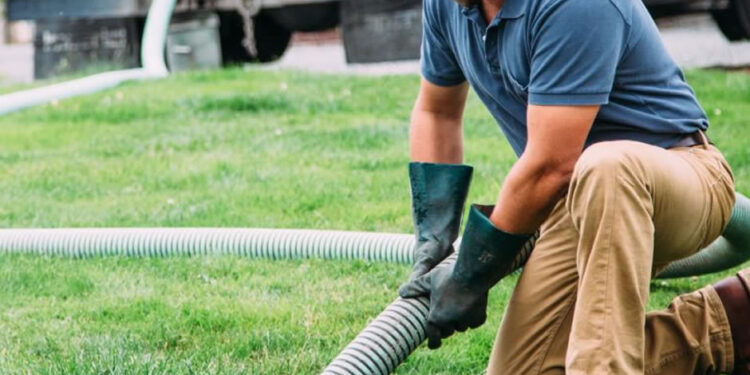Septic tanks are an essential part of many homes, especially in rural or suburban areas where the local sewage system doesn’t reach. Understanding how a septic tank works can help homeowners maintain their systems better and avoid costly repairs. In this article, we’ll provide a simple breakdown of how septic tanks function, what they do, and what you can do to keep them in good health.
We’ll also talk about the importance of septic pumping services and why Septic Pumping of Raleigh is the best choice for residents in Garner, Apex, Chapel Hill, and other areas in North Carolina.
What is a Septic Tank?
A septic tank is an underground system designed to treat and manage wastewater from your home. Wastewater from your sinks, toilets, showers, and washing machines flows into the septic tank, where it’s naturally treated before being released back into the ground.
Septic tanks are crucial in homes that aren’t connected to a municipal sewage system. They work silently, out of sight, processing waste and keeping your home’s plumbing system functioning smoothly. However, they need proper care and maintenance to avoid problems like blockages, backups, or overflows.
How Septic Tanks Work: Step-by-Step
To understand how a septic tank works, let’s break down the process into simple steps:
1. Wastewater Enters the Septic Tank
All the wastewater from your home (toilets, sinks, showers, etc.) flows through the drain pipes and enters the septic tank. The tank is typically a large, watertight container made of concrete, fiberglass, or polyethylene, and it’s buried underground.
2. Separation of Solids and Liquids
Once inside the septic tank, the wastewater starts to separate into three layers:
- Solids (sludge): Heavier materials, such as human waste and other solid particles, sink to the bottom of the tank, forming sludge.
- Liquids (effluent): The middle layer consists of liquids, mostly water, which is the part of the wastewater that will eventually be released into the drain field.
- Scum: Grease, oils, and fats float to the top, forming a layer of scum.
3. Natural Breakdown of Waste
Inside the septic tank, bacteria naturally occur and help break down some of the solid waste. While the bacteria can decompose a portion of the solids, not all of it breaks down. This is why regular maintenance and pumping are required to prevent the tank from filling up with sludge.
4. Effluent Discharge to the Drain Field
The liquid effluent from the middle layer slowly exits the tank through an outlet pipe and is distributed into a drain field (also called a leach field). The drain field is a network of perforated pipes laid in gravel-filled trenches. The effluent flows through these pipes and is gradually absorbed into the soil, where it is further filtered and purified by natural processes.
5. Final Treatment in the Soil
As the effluent passes through the soil, natural bacteria and organisms help filter and treat the water, ensuring it is safe to re-enter the groundwater. This process is essential to prevent pollution and contamination of the environment.
Why Regular Maintenance is Key
Septic tanks work well when they’re maintained properly, but without regular care, problems can arise. The most common issue is when the tank fills up with sludge and scum, reducing the space available for liquids. This can lead to backups in your plumbing system, foul odors, or even a complete system failure.
Tips for Keeping Your Septic Tank Healthy:
- Regular Pumping: One of the most important things you can do to keep your septic tank in good shape is regular pumping. Over time, the sludge at the bottom of the tank builds up and needs to be removed. Depending on the size of your tank and the number of people in your household, most tanks need pumping every 3-5 years. If you’re in Garner, Apex, or Chapel Hill, Septic Pumping of Raleigh offers reliable pumping services to ensure your system runs smoothly.
- Avoid Flushing Non-Biodegradable Items: Your septic system is designed to handle waste and toilet paper, but it can’t break down other materials. Avoid flushing items like wipes, diapers, feminine hygiene products, and harsh chemicals. These can cause blockages and harm the natural bacteria in the tank.
- Conserve Water: Using too much water at once can overwhelm your septic system. Spread out your laundry loads, fix any leaky faucets, and try to conserve water where possible to avoid overloading the system.
- Protect the Drain Field: Your drain field is where the wastewater is filtered and absorbed into the soil. Keep vehicles, heavy machinery, or large structures off the drain field area to prevent damage to the pipes. Plant trees and shrubs a safe distance away to avoid roots from growing into the drain field pipes.
- Watch for Warning Signs: If you notice slow drains, bad odors, or pooling water in your yard, these could be signs of a septic system issue. Don’t ignore these warnings—get your system inspected before the problem becomes more severe.
Why Choose Septic Pumping of Raleigh?
If you’re in Garner, Apex, Chapel Hill, or other nearby areas in North Carolina, maintaining your septic system is essential to avoid costly repairs and ensure your home’s plumbing functions smoothly. At Septic Pumping of Raleigh, we specialize in all aspects of septic tank care, from installation to regular pumping and maintenance.
Our team of experts is equipped to handle all your septic tank needs, including custom repairs, inspections, and complete system overhauls. We’re committed to providing the best service in North Carolina and helping you keep your septic system in top condition.
Whether you need septic pumping in Garner, Apex, or Chapel Hill, you can count on us for reliable, efficient, and affordable services.
Conclusion
Understanding how your septic tank works is the first step in maintaining it properly. Regular maintenance, like septic pumping, is critical to keep the system functioning efficiently. By following simple practices like conserving water and avoiding harmful materials in your drains, you can extend the life of your septic system and avoid expensive repairs.
If you’re looking for expert help in Garner, Apex, Chapel Hill, or other areas in North Carolina, trust Septic Pumping of Raleigh to provide the best services for your septic tank. With our experience and commitment to customer satisfaction, you can rest assured your septic system is in good hands.
A septic tank is an important part of your Raleigh home. Ifyou have a septic tank and are experiencing problems with it, it is best to call a licensed septic tank service company in Raleigh that has years of experience in the field. We provide honest, professional guidance and can handle any issues you may have. Our technicians are licensed and insured to ensure that we provide our customer with a quality service, no matter what time it is. We offer professional septic tank services at affordable prices.




























































